No One Is Safe: Senior Banker Lost RM6.65 Million in an Online Scam
Abstract:A senior Malaysian bank officer lost RM6.65 million in a fake online investment scam, proving that even financial professionals can be deceived. Learn how modern scams operate and how WikiFX can help protect investors from scams like this.
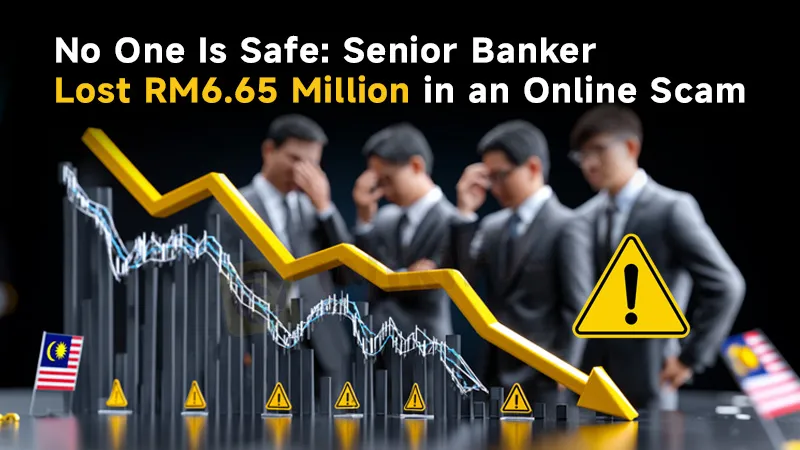
A senior Malaysian bank officer has lost RM6.65 million to a fake online investment scheme. The incident, which occurred between 3 August and 1 October, has sparked a strong scam alert from police, warning that even those with professional financial knowledge are not immune to deception.
According to Seremban District Police Chief Assistant Commissioner Mohammad Hatta Che Din, the victim was persuaded to download what appeared to be a legitimate investment application from an online platform. She proceeded to make 129 separate transactions to purchase shares, believing the platform represented a regulated trading service.
The truth was devastating: there were no real investments, no legitimate brokers, and no profits. The entire operation was a well-executed online investment scam, resulting in total losses of RM6.65 million.
The case is currently being investigated under Section 420 of the Penal Code for cheating. Police have reiterated the need for the public to verify all investment opportunities through Bank Negara Malaysia (BNM) and the Securities Commission Malaysia (SC) before committing funds.
If a Banker Can Be Scammed, Anyone Can
This case shatters the common belief that only inexperienced investors fall victim to scams. The fact that a bank officer, trained in risk assessment and financial compliance, could be deceived so completely demonstrates how far scammers have evolved.
Todays fraudulent schemes are designed to look real. Fake trading apps and phony investment platforms mimic the appearance of licensed brokers, complete with detailed websites, customer service hotlines, and even fabricated profit dashboards. In many cases, victims see small “returns” early on. This is a common tactic scammers use to gain trust before they disappear with the money.
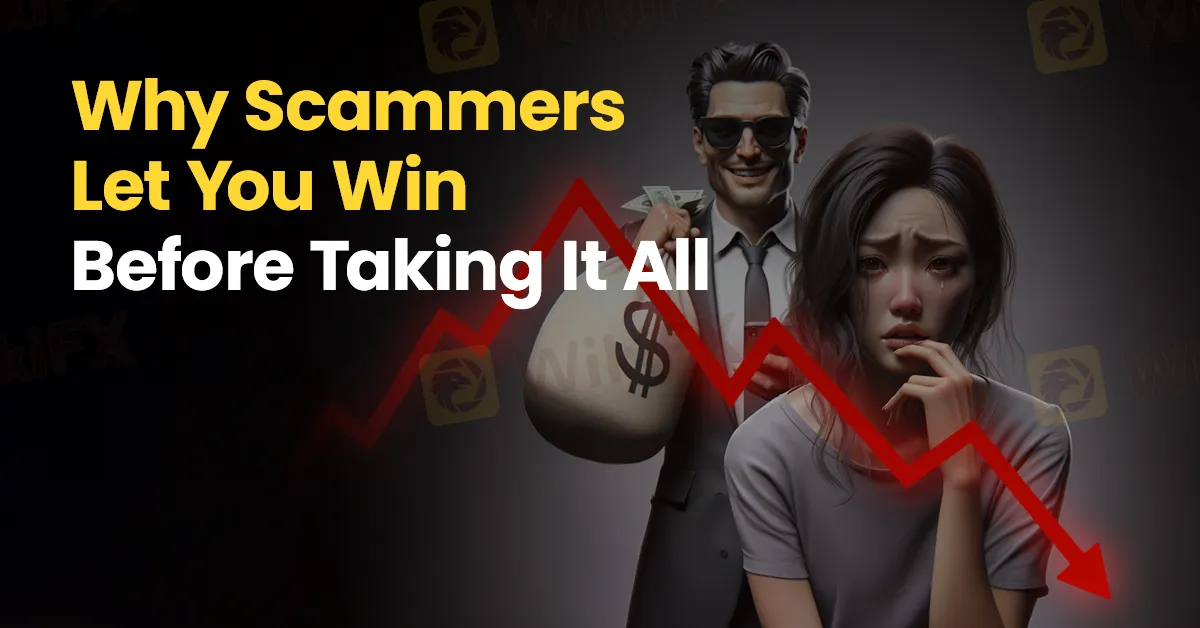
https://www.wikifx.com/en/newsdetail/202503148244401400.html
The victim‘s repeated payments (over 129 separate transactions) show how convincingly the fraudsters built trust. This was not a rash decision but a carefully manipulated process that preyed on the victim’s belief in the platforms authenticity.
The Surge of Investment Scams in Malaysia
Across Malaysia, reports of online investment scams have surged. Fraudsters are increasingly targeting investors through WhatsApp, Telegram, Facebook, and even dating apps, blending social interaction with financial deception.
These operations often involve coordinated groups running multi-layered schemes. Their strategies include creating fake licences, copying legitimate broker websites, and displaying fabricated trading data. Once funds are transferred, the money is swiftly routed through multiple accounts, often across international borders, making recovery almost impossible.
Authorities describe this as part of a growing digital crime trend, where deception is designed to be indistinguishable from genuine financial services.
Scam Alert: Verification Is the Only Defence
Police and financial experts are urging Malaysians to treat every online investment opportunity as suspicious until proven otherwise.
Before investing, individuals should:
- Verify a brokers licence and regulation directly with BNM, SC, or trusted verification platforms such as WikiFX.
- Be cautious of unsolicited messages or investment “advisers” approaching through social media or messaging apps.
- Avoid newly registered brokers with limited operational history or unclear ownership details.
- Check for warning signs, such as guaranteed profits or pressure to invest quickly.
As scams continue to evolve, knowledge and verification remain the strongest defences.
How WikiFX Helps Investors Stay Protected
In response to the rise in forex scams and fraudulent trading platforms, WikiFX has become an essential resource for investors worldwide. The platform acts as an independent, third-party evaluator of global FX brokers, maintaining a database of over 70,000 brokers.
WikiFX enables users to check a brokers regulatory status, licence authenticity, and safety rating before investing. It also provides detailed profiles, customer reviews, and broker risk indicators to help investors make informed decisions.
For those who suspect theyve been scammed, WikiFX offers case analysis and consultation services, helping victims understand their options and minimise further losses.
Transparency Through the Exposure Service
One of WikiFX‘s most powerful features is its Exposure Service, where users can report suspected scams or share experiences with fraudulent brokers. Every report is investigated, and verified findings lead to updates in the broker’s reliability rating.
This public reporting system fosters transparency, creating a shared database of scam alerts that helps protect the wider trading community. All submissions are kept confidential under strict data protection measures, ensuring user safety and privacy.
Through this collaborative approach, investors not only protect themselves but also contribute to preventing future cases of investment fraud.
Why Even Experts Fall for Scams
The tragedy of this case lies in its irony: a banker, someone who regularly advises others about financial prudence, became a victim herself. But it also sheds light on the psychological manipulation behind modern scams.
Fraudsters use emotional triggers such as urgency (“act now or miss out”), exclusivity (“private opportunity for select investors”), and fear of missing out (FOMO) to pressure victims into acting quickly. Even experienced professionals can be persuaded when the presentation appears credible and the pitch sounds financially plausible.
This RM6.65 million loss is not an isolated incident. Read these articles below to learn why such scenarios happen to smart people as well.

Think Youre Too Smart to Fall for an Investment Scam?! https://www.wikifx.com/en/newsdetail/202504084474538632.html

Think Scams Won‘t Happen to You? That’s Exactly What Scammers Count On
https://www.wikifx.com/en/newsdetail/202504173074644532.html
Before transferring a single ringgit, investors must ask:
- Is the platform regulated by a recognised authority?
- Is the company name listed in any Malaysia investment scam alert database?
- Can the brokers licence be verified independently?
If any answer is uncertain, the safest decision is to walk away.
Conclusion: Trust Must Be Earned, Not Assumed
The fall of a bank officer to a fake trading app demonstrates that no one is safe from digital deception. In a world where scammers can replicate the look and feel of genuine investment platforms within hours, trust must now be earned through verification, not presentation.
With the rise of online investment scams in Malaysia, vigilance, scepticism, and verification tools like WikiFX are more critical than ever. The cost of neglect is not just financial, but its also emotional, reputational, and deeply personal.
Because when even a banker can lose millions to an investment scam, its no longer just a cautionary tale, but a major national warning.

Read more

Want to Trade Via Daicha Iconic Markets Ltd? Wait and Read This Review First!
Has your forex trading experience with Diacha Iconic Markets Ltd been abysmal with constant profit withdrawal denials? Have you also failed to recover your principal investment amount, let alone interest earnings? Failed to see any of the promises fulfilled by this Saint Lucia-based forex broker? You are not alone! These issues have become typical of this forex broker. As a result, many traders have complained online. In this article, we have shared Diacha Iconic Markets Ltd reviews. Read it out as we detail.
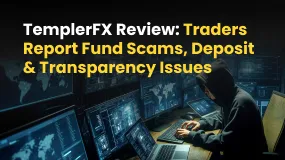
TemplerFX Review: Traders Report Fund Scams, Deposit & Transparency Issues
Have you fallen victim to financial scams triggered by TemplerFX’s manipulative trading practices? Does your deposit vanish the moment you put it into the trading account? Do you struggle to gain information regarding your TemplerFX trading account? It is advisable to recover all your capital from the broker, even if it means taking legal action against it. Several traders have even pursued legal action to recover their funds — highlighting the seriousness of the issue. Meanwhile, explore these TemplerFX trader reviews and see how closely their experiences mirror yours. Read on to know about them.
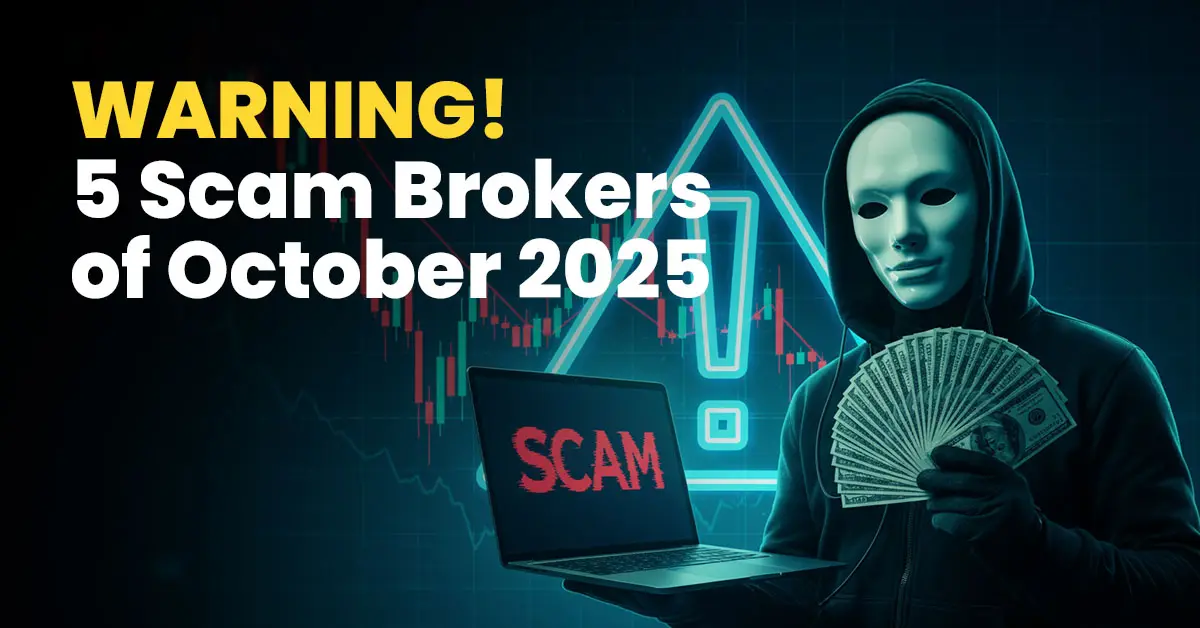
WikiFX Warning: 5 Scam Brokers Exposed in October 2025
Online trading scams continue to rise in 2025, and unsuspecting traders are losing millions to fraudulent forex brokers every month. According to the latest WikiFX investigation, several brokers with low trust scores and misleading regulatory claims have been flagged this October. If you are considering investing or opening a trading account, avoid these five scam brokers immediately. Each has a poor reputation, multiple user complaints, and serious regulatory concerns.
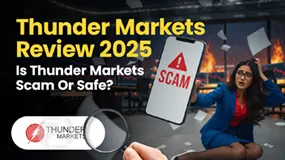
Thunder Markets Review 2025: Is Thunder Markets Scam Or Safe?
Before investing with any broker, you should always check whether the broker is worth your investment or not. Some brokers are not safe and can swindle your money. Read this Thunder Markets Review 2025 and find out: Is Thunder Markets a scam or safe?
WikiFX Broker
Latest News
Evonik CEO Kullmann Calls For End Of CO₂ Cult: Wake-Up Call For Europe's Economy
Stand a Chance to Earn $10 for Each Broker Review – Join Now!
FCA Warning list 2025: Unauthorised firms to Avoid
Traders Report Fund Scam & High Slippage at TD365: Read What They are Saying
Bank of America says investors are ignoring one major stock market risk
How to Spot a Forex Scammer Before You Invest
FCA Cracks Down on £1m Ponzi Scheme in UK
WikiFX Warning: 5 Scam Brokers Exposed in October 2025
Want to Trade Via Daicha Iconic Markets Ltd? Wait and Read This Review First!
Freedom24 Review: Is it a Risk Broker?
Rate Calc

